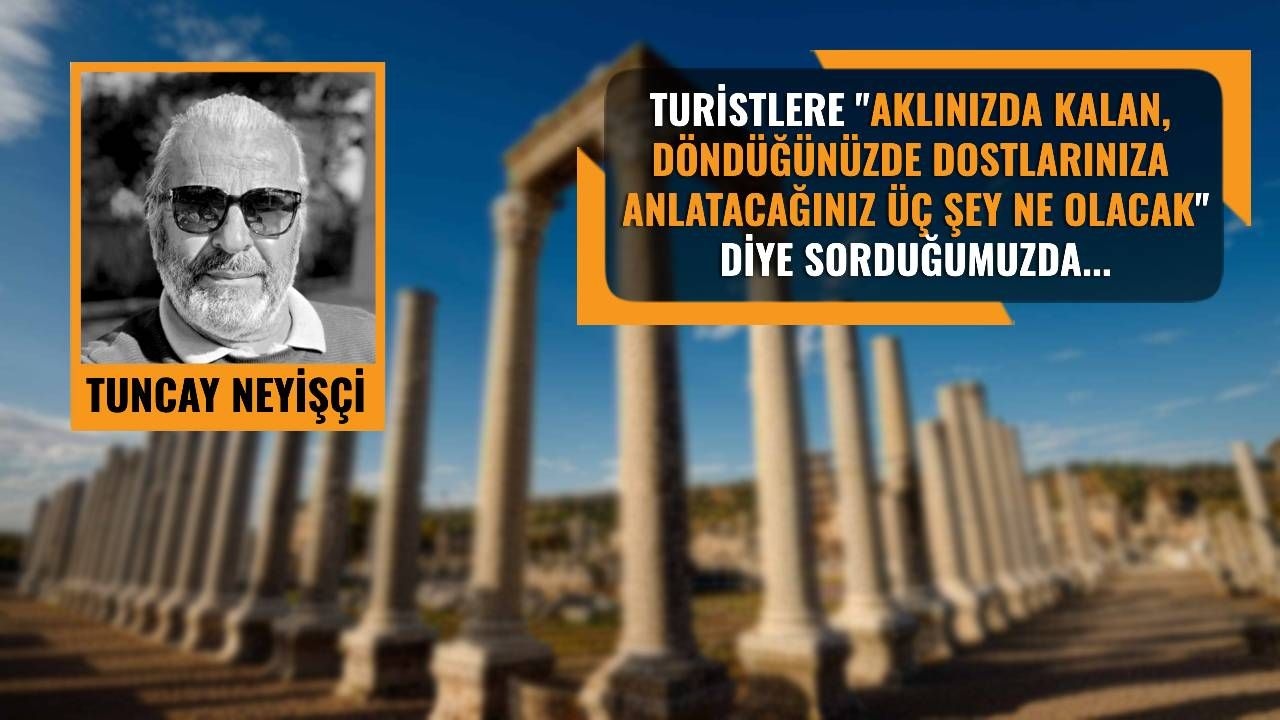"This is not tourism but a commercial activity."

Before delving into tourism and sustainability , I believe it's important to emphasize a few points about the importance of viewing the phenomenon or concept of tourism from a broad perspective. Tourism in Anatolia cannot be practiced without a deep understanding of Anatolia and its unique values. The reason is simple. Anatolia is the only region where tourism originated and whose influence we must now acknowledge, a bridge between the West (you could call it Europe or the Mediterranean) and the East, possessing values belonging to both. In other words, Anatolia is the only region that has the opportunity to offer the values of Europe , Asia , and Africa , and Anatolia is part European, part Asian, and part African. This is a highly valuable topic for tourism, worthy of reflection and in-depth analysis. This is a reality that profoundly impacts not only tourism but also a wide range of issues, including politics, economics, strategy, and sustainability. We must acknowledge that Turkish tourism has failed to fulfill this role.
An example? Their response to the classic question I asked as a tour guide after a week-long or ten-day tour of Anatolia in the 1980s and 1990s was: What three things did you enjoy during that time, that stayed with you, and that you would tell your friends about when you returned? Almost 70% of the responses were either about Turkish food or the friendly nature of the people in a village we visited (who were encountering tourists for the first time) . What was striking was that none of them mentioned the hotel we were staying in, or even archaeological sites like Troy , Ephesus , or Perge . If the program included archaeological sites unique to Anatolia , such as the Hittite or Cappadocia , they might also be mentioned. Neither tourism nor sustainability can be understood without reflecting on these answers.
Another example: I couldn't find a single establishment serving Turkish coffee in Antalya's Cumhuriyet Square (which has happened elsewhere as well), the tourism capital of Turkey (or Ottoman Empire ), a global brand that introduced coffee and coffeehouses to the world even before our country's introduction to tourism. What's even more interesting is the answer the business owners gave when I asked why: tourists want Nescafe.
Thinking that we are doing tourism by first replacing the Turkish bath with saunas and then SPAs is another archaic and concrete example of why we may have difficulty understanding the concept of sustainability.
When asked what comes to mind when you think of Italy , France , or Spain , consider the yacht you'd choose. I'm sure none of you would answer "accommodation." I suspect your answers would likely include pizza, ice cream, wine, the Eiffel Tower , the Louvre Museum , espresso , paella , and flamenco . Am I right? All of these answers are directly related to sustainability.
Antalya , one of the rare cities built on the world's largest travertine plateau and tallest cliffs, boasts 234 ancient settlements from diverse cultures within a relatively narrow area (22,000 km2) (this translates to one ancient city for every 90 km2), and is built on the world's largest travertine plateau and tallest cliffs . Confining Antalya to a tourism system crammed between hotels and accommodations, without exploring these values and engaging with them culturally, cannot even be defined as tourism, let alone sustainable. This is a commercial activity. You may even profit from it, but it is certainly not tourism. Tourism is a field that must encompass social and cultural interactions as well as economic ones. Therefore, it is a specialized branch of commerce and distinct from trade.
As long as the tourism sector, as a whole, continues to ignore the country's unique, diverse and varied assets and fails to provide solutions to these pressing problems, it cannot escape being a sector that condemns this country's resources to returns far below their value and cannot contribute to the country's development.
turizmekonomi






